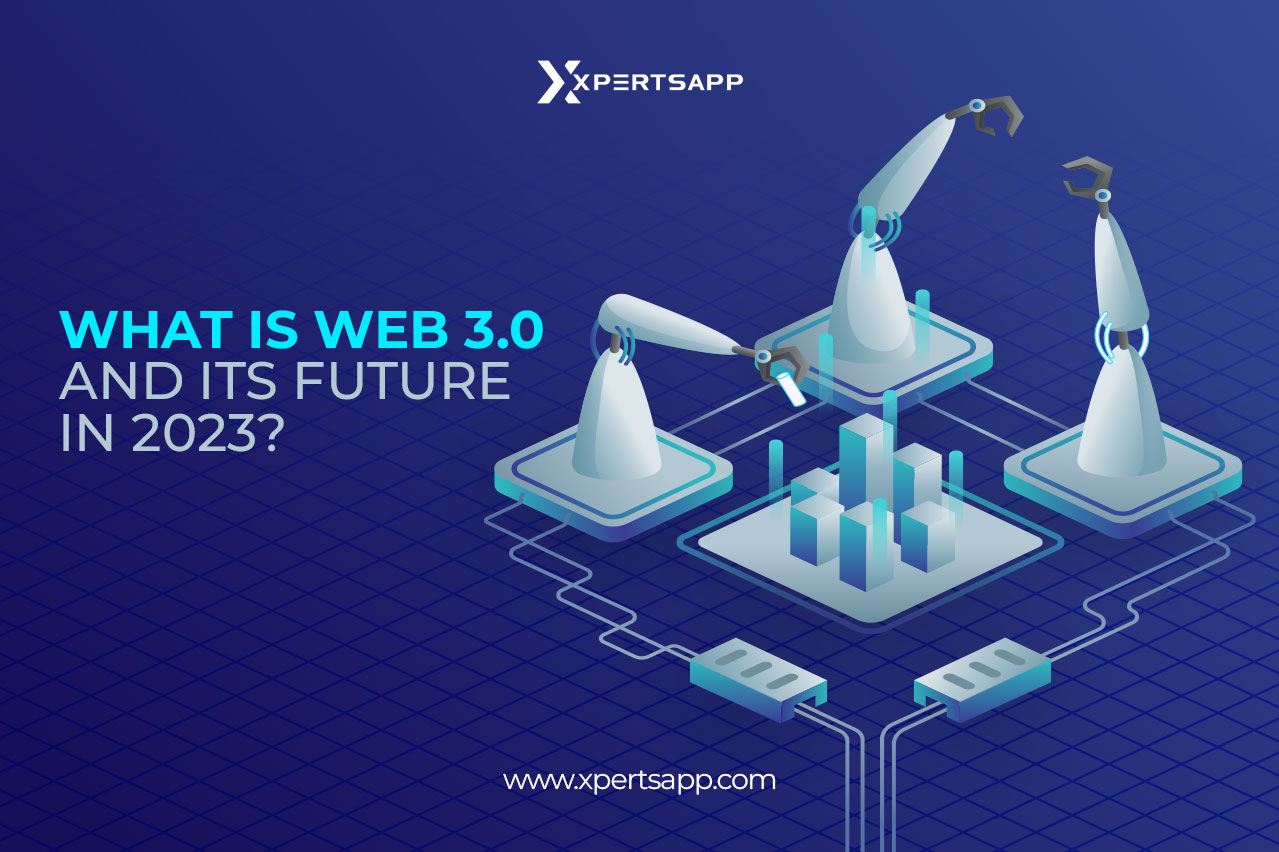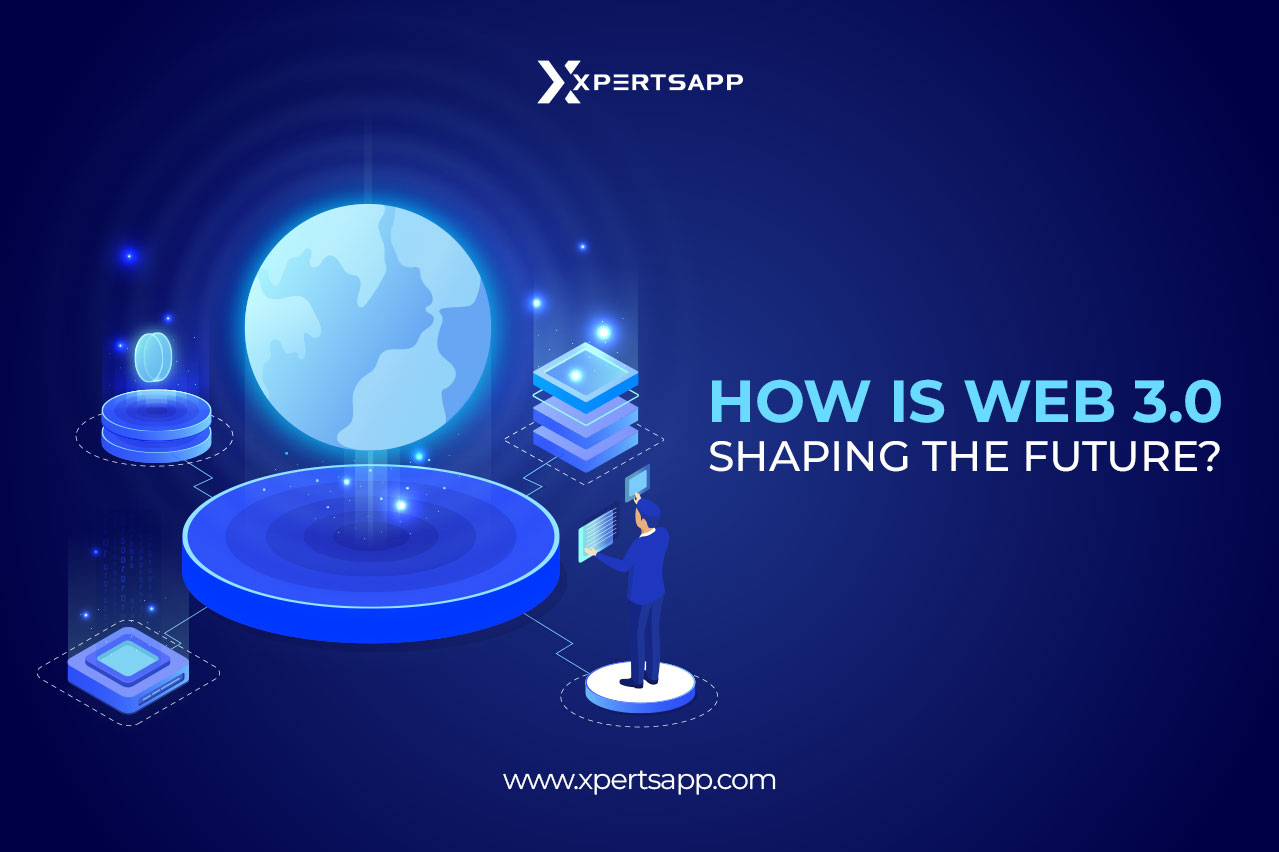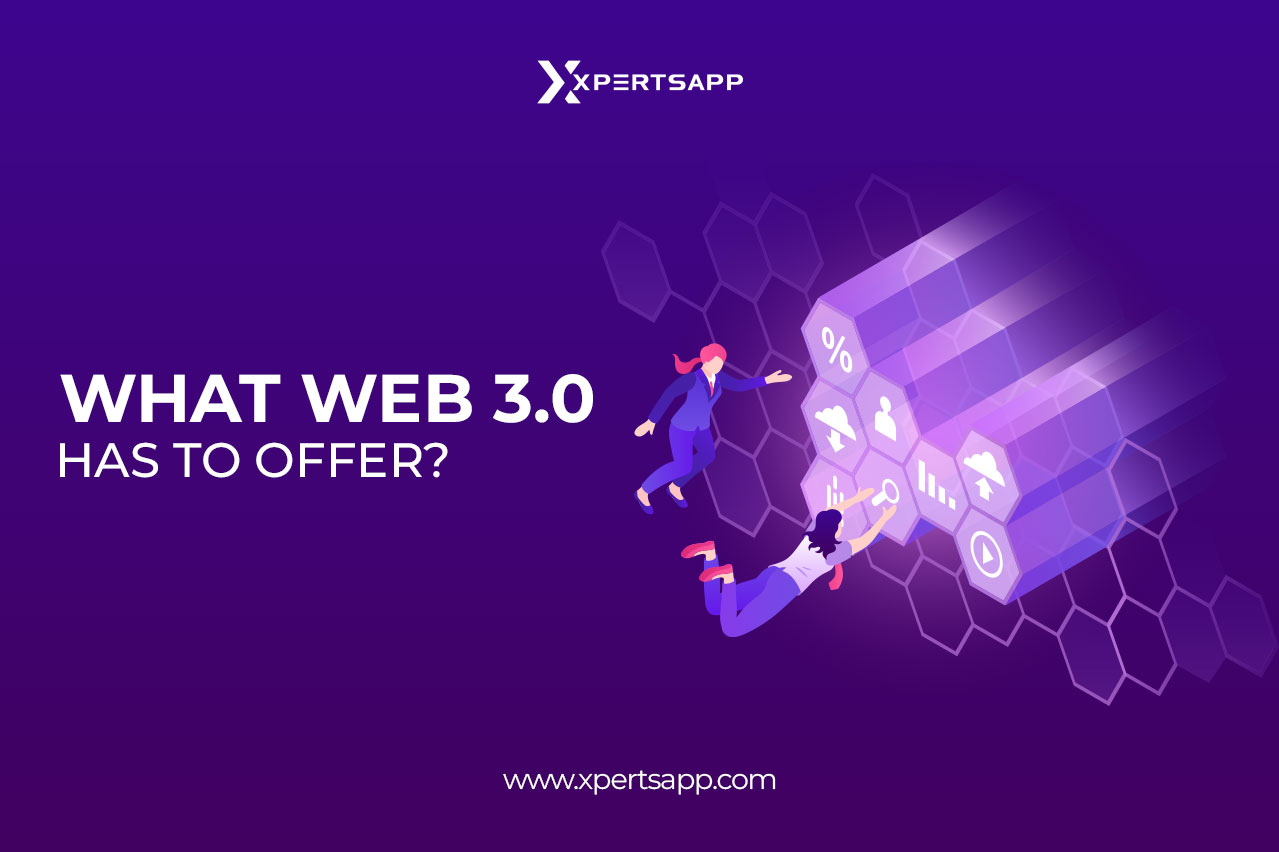What Is Web 3.0 And Its Future In 2023?
by: XpertsApp Team
-6320 views

People could engage and communicate with one another without really needing to be in the same place because of the centralized World Wide Web, which helped to create an all-new way of thinking about the world. This paradigm change had such a profound effect that it has been hailed as one of the top 20th century’s most important discoveries.
A relatively small number of entities now manage a vast percentage of online traffic. Still, this extensive, centralized infrastructure became a victim of its success, raising concerns about censorship, data breaches, and privacy abuses.
Web3—a decentralized web that gives users authority over their data. Web 3.0 enables direct user-to-user communication by employing peer-to-peer technology rather than depending on centralized servers. In addition to giving people more control over their data, this might make the internet more inclusive and available to all users.
How is Web 3.0 shaping the future?

Over the past three decades, the Web’s landscape has undergone a profound upheaval. Since Web 1.0’s early years, when the internet primarily served as a channel for transmitting text-based information, a lot has changed. Rich media content has now been introduced thanks to Web 3.0 and the continuously changing consumer needs.
Web 3.0 For Individuals
Web 3.0 is the next significant advancement in accessing and exchanging information online. Soon-to-be-released AI-enabled search engines are already having an impact on user behavior. The user’s experience on this future generation of the Web will be customized to meet their requirements and needs. Users will now be able to store data that can’t be censored by any specific entity, such as the government or corporations because it will only exist on the users’ own devices—serving users to say that it will be the next level phase of growth for individuals and businesses as well.
Web 3.0 For Businesses
Omnipresence
Web 3.0 completely transforms how consumers access data as they move beyond PCs and cellphones to access material on various devices whenever and wherever they choose. The Internet of Things (IoT) is bringing Web 2.0 to a new level and is here to stay, even though it is already widely used.
Personalization
Taking personalization to the next level. Instant data collection provides a more meaningful frame for online interactions and engrossments. Adopting a suitable business model can help businesses to drive a more specific target audience to their business, converting them towards profitability and offering companies improved possibilities of advertising and promoting their products or services.
Learn More: How to choose an App Development Company?
More User-Friendly (Smartphone integrated experience)
Mobile phones provide users with quick access to data over the internet. They have a significant role in every individual’s data collection as it is the most user-friendly gadget operated by most of the population around the world.
What Web 3.0 Has To Offer?

Web 3.0 features several distinctive characteristics, although it lacks a defined definition.
- Decentralization is a critical component of Web 3.0. In Web 2.0, computers use HTTP as unique web addresses to look up material stored at a fixed location, often on a single server. With Web 3.0, information can be found based on its content rather than a single place, leading to decentralized data storage. Tearing down the massive datasets that internet giants like Meta and Google maintain would offer people greater control.
- Over decentralized data networks, people can sell their data through Web 3.0, guaranteeing that they retain complete control. Powerful computing devices like mobile phones, desktop computers, appliances, cars, and sensors will all contribute to the production of this data.
- Cognitive computing (AI) and machine learning. Web 3.0 will make it possible for machines to interpret information similarly to humans by utilizing the Semantic Web and technologies based on natural language processing. In addition, machine learning—a branch of artificial intelligence (AI) that uses data and algorithms to simulate human understanding and steadily increase accuracy—will be incorporated into Web 3.0. These capabilities will lead to quicker and more relevant outputs in various disciplines. This includes medical development and new materials rather than just targeted advertising. Which accounts for most of the current system’s operation.
These are some of the main factors driving any person or company’s online profile. But there will undoubtedly be much more to consider once web 3.0 is fully integrated.
Read More: Common Uses of Web 3.0 In Blockchain Technology
Conclusion
Web 3.0 is designed to provide long-lasting outcomes because of its decentralized nature. Made possible by distributed ledger technology and smart contracts. It also reduces costs by eliminating intermediaries, manual mediation, and arbitration.
Web 3.0 promises a far more personalized browsing experience for everyone. Web apps will become far more reactive to our usage patterns. Websites will be able to adapt automatically to our device, location, and any accessibility requirements we may have. It remains to be seen if Web 3.0 will be a success. But there is one point where most specialists concur: the need for data security will be crucial. As a result, security experts and security-related systems would be in high demand.
Additionally, there will be a greater need for blockchain developers. Want to learn more about blockchain and become a master of the architectural tenets? XpertsApp is here to assist your demands.